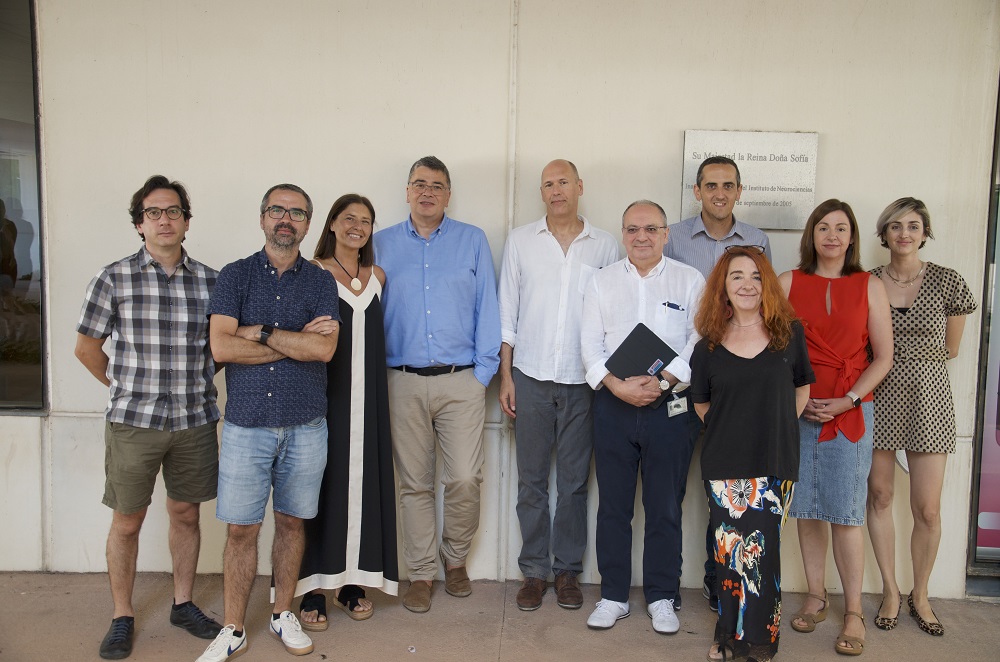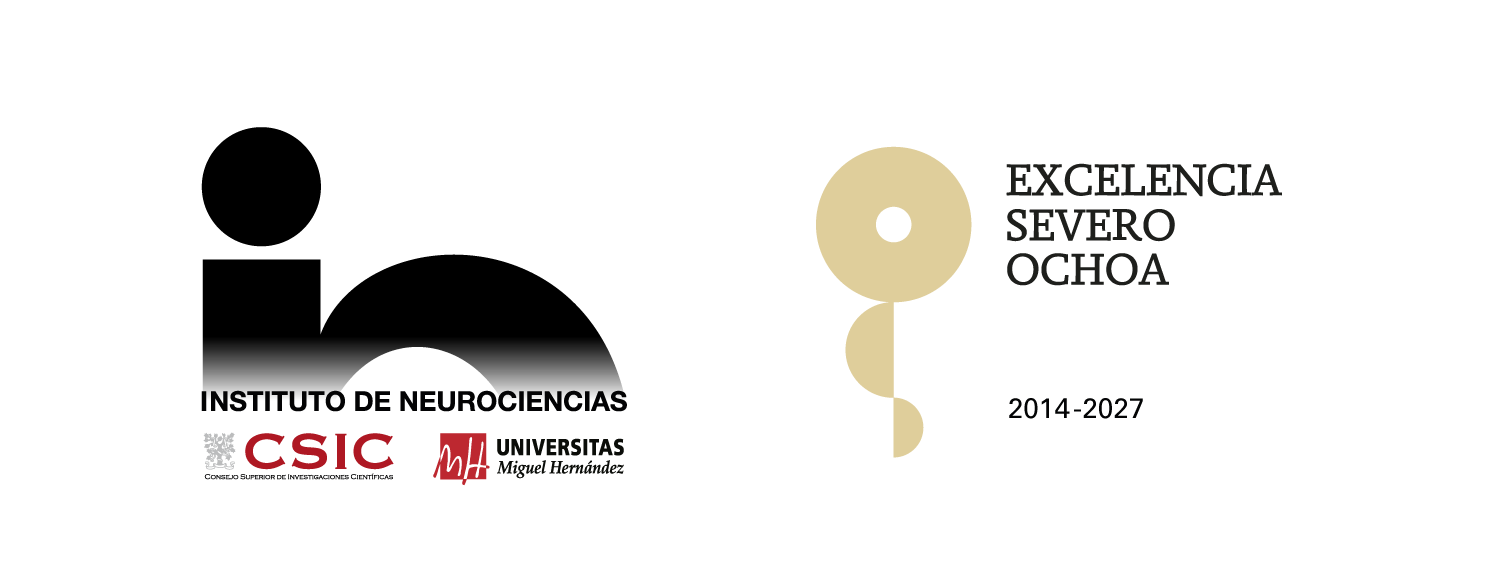The Institute for Neurosciences CSIC-UMH has held the 17th edition of the ‘IN Progress Report’ workshop
8 de July de 2024
The assembly hall of the Institute for Neurosciences (IN), a joint center of the Spanish National Research Council (CSIC) and the Miguel Hernández University (UMH) of Elche, has been the venue for the 17th edition of the ‘IN Progress Report’ workshop, which took place last Friday, July 5. This is an annual event in which half of the research group leaders present the work they have carried out in their laboratories in the last two years to the IN research community and propose their future lines of work.
This edition has seen participation from four of the eight scientific programs within which the IN structures its research groups. From the Neural Stem Cell Regulation and Differentiation program, researchers Eloísa Herrera and Ana Carmena have been actively involved. Eloísa Herrera heads the Generation and Regeneration of Bilateral Neural Circuits laboratory, conducting cutting-edge studies on the regulatory mechanisms that govern axons' orientation and focusing processes during the wiring of neuronal circuits. On the other hand, Ana Carmena leads the laboratory focused on the Asymmetric Division of Neural Stem Cells in Development and Tumorigenesis, to delve deep into this process using cells from the central nervous system of the vinegar fly (Drosophila melanogaster).
Representing the Cell Plasticity in Brain Disease and Repair program, the speakers included Jose Vicente Sánchez Mut, who leads research in the Functional Epi-Genomics of Aging and Alzheimer's Disease laboratory to better understand age-related brain malfunctions and identify new biomarkers and targets for developing dementia-related therapies; and Berta López Sánchez-Laorden, who co-leads the Cell Plasticity in Development and Disease laboratory and directs studies to figure out the factors in the tumor microenvironment that contribute to the plasticity of melanoma.
Researchers from the scientific program Synaptic Modulation of Neural Circuits and Behavior also participated: Juan Lerma, who directs the Synaptic Physiology laboratory from which he has contributed to clarifying the basic mechanisms of neuronal communication and its plastic properties, fundamental for learning and memory processes; and John Wesseling, who, at the head of the Molecular and Cellular Physiology of Synaptic Transmission laboratory, develops studies to achieve greater knowledge of information processing in humans to improve current treatments for mental illnesses.
Finally, researchers from the scientific program Genetic and Epigenetic Bases of Individuality and Aging also participated: Javier Morante, who directs the Neuroendocrine Control of Organ Growth and Sexual Maturation laboratory, in which he works with the vinegar fly to identify the molecular and cellular mechanisms, and the neuroendocrine circuits necessary for the regulation of sexual maturation and control of body weight; Juan Antonio Sánchez Alcañiz who leads the Neurogenetic Bases of Behavior laboratory whose objective is to study sensory integration and decision-making processes using the gustatory system of Drosophila melanogaster as a model; and Ángel Barco, director of the Transcriptional and Epigenetic Mechanisms of Neuronal Plasticity laboratory, in which he focuses on studying, with a multidisciplinary approach, the role of epigenetics of gene expression in neuronal plasticity, learning, memory and. Intellectual disability.
On this occasion, the workshop program also included a farewell to the researchers Manuel Criado and Luis García-Alonso, on the occasion of their retirement, and an emotional posthumous tribute to the researcher Miguel Valdeolmillos, led by his IN colleagues and disciples. Additionally, second-year students from the IN PhD program gave poster presentations.
The organization of these sessions has been in charge of the researcher Javier Morante and they have had the collaboration of Izasa Scientific.

Source: Institute for Neurosciences CSIC-UMH (in.comunicacion@umh.es)

 Español
Español